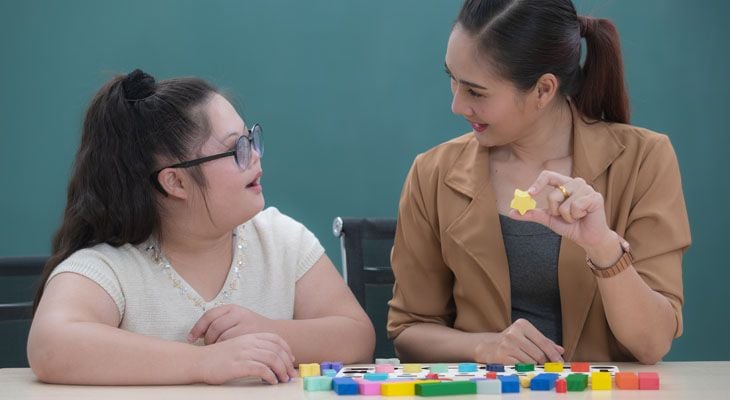
Symptoms and Problems Caused By Autism
Autism is a neurological disorder in which the person has difficulty processing and reacting to information received from their senses. The individual also has trouble communicating and interacting socially.
Signs of autism include:
- Lack of shared social interaction
- Postponement in development
- Untimely response to sensory information
As a result of the condition, autistic people commonly have visual problems, including:
- Lack of eye contact
- Gazing at spinning objects or light
- Short-lived peripheral glances
- Side viewing
- Difficulty using visual information efficiently
- Trouble staying visually focused
- Eye movement disorders
- Crossed eyes
- Problems with motor skills and depth perception
- Troubles with eye-hand coordination
- Sensitivity to light
In addition to the above complications, there are often challenges with coordinating central and peripheral vision. So, for instance, if asked to track an object with their eyes, an autistic person generally will not look directly at the target. Rather, they will glance over or look off to the side of the object. On the other hand, individuals may disregard peripheral vision all together and stay fixated on a specific spot for extended periods of time.
The inability to merge both peripheral and central vision can result in problems processing and incorporating visual information. And when visual processing is inhibited, motor, speech, mental and perceptual capabilities could be impacted.
Testing for Autism
Many times, autistic people are visually or tactually defensive. As it specifically relates to vision, this means that the person tends to continuously scan visual information as a way of trying to process its meaning.
A primary care physician will and can diagnose autism, but an optometrist can evaluate vision and perform tests that examine the individual’s visual abilities. Tests usually consist of having the person perform actions—like sitting, standing, walking and throwing a ball—while wearing specialized lenses and/or yoked prisms. By doing this, the optometrist is able to inspect their postural adaptations and how they see and react to visual stimulation.
Once information from the tests is gathered, the specialist can prescribe lenses to help with astigmatism, farsightedness or nearsightedness. Vision therapy may also be recommended and can be used to encourage visual stimulation, eye movement and awakening of the central visual system. All forms of treatment are intended to help autistic individuals establish visual space, increase peripheral stability, improve central vision, have better eye coordination and enhance how the person processes visual information.
A follow-up examination will likely be scheduled every three to five weeks to evaluate progress.
